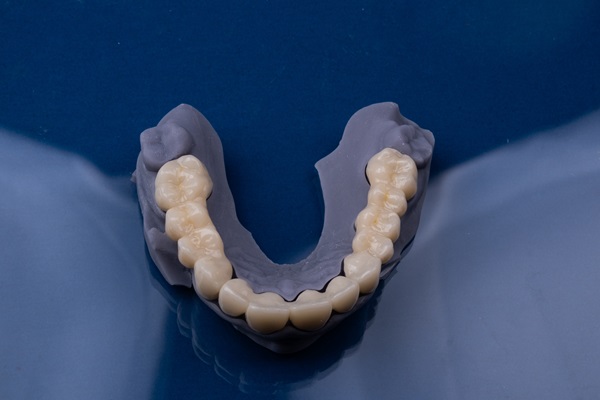Who Should be Concerned about Oral Cancer?

In short, anyone can have a form of oral cancer. However, individual lifestyle choices can also significantly impact and increase the risk of oral cancer. When a dentist checks a patient for oral cancer, they are looking at the entire oral cavity.
The oral cavity includes a person's lips, cheek lining, gums, the front of the tongue, beneath the tongue, and the roof of the mouth. Also included is the part of the mouth that begins at the roof of someone’s mouth and reaches to the back of the throat, as well as the back part of the tongue.
What are the signs of oral cancer?
One of the best things a person can do is be aware of the signs and symptoms of oral cancer. By having this knowledge, one can inspect their mouth and bring attention to any areas of concern with their dentist.
Below we will outline some of the signs that someone can be aware of when it comes to symptoms of oral cancer, and be better equipped to bring up the subject with their dentist.
Signs and symptoms of oral cancer
On any of the surfaces of the oral cavity, if there is a sore or irritation that does not seem to go away, then this is an indication that oral cancer may be forming. If there are any red or white patches on these areas of the mouth and oral cavity then this also might be a sign of oral cancer beginning to form.
If someone is experiencing any pain, tenderness or numbness on or around the mouth or lips, this is another common symptom of the formation of oral cancer along with a lump or thickening of certain areas in the mouth.
If someone is experiencing any difficulty chewing, swallowing, or speaking when moving their tongue or their jaw this can be an indicator of oral cancer. Lastly, another symptom is if someone notices a sudden change in the way their teeth seem to fit together when closing their mouth.
Who is at a greater risk of having oral cancer?
In recent years, research has shown that certain factors can make a person more likely to have the formation of oral cancer. Men, for instance, are twice as likely to have oral cancer than women. Along with people who smoke and drink an excessive amount of alcohol, people older than 50 are at the most risk of having an oral cancer form.
Can a dentist detect oral cancer?
The most common question that we receive at our dental office from patients that are concerned about oral cancer is if dentists are the best type of doctor to detect oral cancer. In short, the answer is yes. Because dentists have the most knowledge of the oral cavity, they are equipped and trained to see the signs and symptoms of oral cancer.
The best time that this happens is during a person's bi-annual cleaning and check-up. During this time a dentist will always ask about any changes in your medical history and if you happen to have noticed any unusual symptoms of oral cancer. After this quick follow-up, the dentist will begin their exam of a person’s oral cavity to detect any possible trouble spots. This will include your lips, tongue, cheeks, and roof of the mouth.
Have more questions about oral cancer? We can help.
Contact our office at any time, and our trained staff can answer any questions you may have about oral cancer. Schedule a consultation and cleaning to have the dentist check your mouth for any signs of oral cancer. Contact us today!
Request an appointment here: https://www.ddsbaik.com or call Dennis Baik, DDS at (408) 676-5321 for an appointment in our San Jose office.
Related Posts
Most adults experience some degree of gum disease during their lifetime, but it does not necessarily lead to tooth loss. Understanding how to identify and treat the stages of this common ailment can prevent it from spreading and reduce its impact.Gum disease is an infection of the gum tissue surrounding the teeth. It starts with…
If you are suffering from gum disease, it is important to know the different treatment options for gum disease. We typically recommend beginning with the least invasive measures to see if that will improve the overall health of the teeth and gums. Then, if additional treatments are necessary, a patient can progress through them until…
Laser dentistry became commercially available in 1989. Since then, it has grown significantly in popularity and is now the preferred form of treatment for millions of patients across the United States and worldwide. Dental lasers are used to treat a range of oral health concerns, including cavities, gum disease, and oral infections. Here, we focus…
Learning what laser dentistry is and how it works is something every dental patient should do, as this allows them to make treatment choices that are right for them. Modern-day dentistry has allowed for the evolution of so many kinds of dental advancements, including laser dentistry, which has been proven to produce successful results for…


